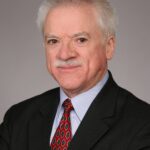Yesterday, a “Senior Organizer” for the “Public Citizen’s Democracy Is For People Campaign” named Aquene Freechild commended the morally and fiscally bankrupt state of Illinois for becoming the 14th state to call for a constitutional amendment to “rid elections of corporate money and unlimited spending” — as if that could even be done.
(The rest of the Dirty Dozen Plus Two are the largely Democratic-dominated enclaves of California, Colorado, Connecticut, Hawaii, Maine, Maryland, Massachusetts, Montana, New Jersey, New Mexico Rhode Island, Vermont, West Virginia, and the District of Columbia, which of course is not a state.)
Nearly hyperventilating, the University of Wisconsin-educated former congressional staffer turned “progressive” political organizer emphasized twice in three sentences that the effort in Illinois was “bipartisan,” purportedly demonstrating that “people of all political stripes are deeply concerned about corporations having too much influence over our democratic process.”
Poppycock! … as many Heartland policy advisors noted in a press release on Friday.
Ms. Freechild is so wrong in so many ways that they are almost impossible to count, but let us start with a short list of 10:
1. Illinois is in effect a one-party state dominated by low-information voters and the City of Chicago. As heroic Chicago Tribune columnist John Kass has characterized it for many years, a “combine” of entrenched political interests runs the state of Illinois for its own benefit, not that of the state’s citizens. Like its aberrant gun control laws — the strictest and yet least effective in the nation — what Illinois does or favors in the realm of restricting the First Amendment should serve as a warning bell, not a model, for the rest of the nation.
2. The biggest threat to entrenched power anywhere is the power of independent spending. As every politician and newspaper publisher knows, getting your message out requires money. Incumbent politicians typically favor limiting outside spending precisely because it can knock them out of positions of power. That’s reason enough to favor more political speech and spending, not to restrict it.
3. “Nude dancing” notwithstanding, political speech is at the core of the First Amendment. The current administration in Washington may disparage those who “cling to their guns and religion,” but if the First Amendment means anything it means that the government may not silence, inhibit, or even “chill” political speech. As the Supreme Court majority rightly recognized in Citizens United v. Federal Election Commission, curbing spending means curbing speech.
4. It is no more defensible (nor constitutional) to limit political spending by corporations than it is for the government to restrict the page count of a newspaper or the word count of a blog. (Twitter, being private, can do whatever it wants, but a 140-character “tweet” does not exactly lend itself to profound political discourse.) A corporation is simply a legal form of organization that enables the proprietors to limit their liability to trade creditors to the assets of the corporation if the entity should fail.
5. The “corporation” at issue in Citizens United was not General Motors, RJR Reynolds, or even Koch Industries. Instead, much like the “Public Citizen” on behalf of which Ms. Freechild writes — which bills itself as a “national, nonprofit consumer advocacy organization founded in 1971 to represent consumer interests in Congress, the executive branch and the courts” — Citizens United was a not-for-profit entity that in 2008 produced a political documentary about then-United States Senator and presidential candidate Hillary Clinton.
6. Citizens United planned to release its documentary as a pay-per-view video-on-demand during the 2008 primary campaign, and incorporated as a not-for-profit in part to limit its members’ potential financial liability if the movie should flop. Citizens United was wise to do so, for the federal government sought to silence the film entirely for political reasons, outrageously arguing orally before the U.S. Supreme Court that the Federal Election Commission could even ban the sale of a book during election season if the book said “vote for (or against) candidate X.”
7. Citizens United’s fallout rains on the just and the unjust alike. It is no more just nor moral to ban “corporations” or not-for-profits from spending on political campaigns than it would be to ban Hollywood from producing the recently-rumored (and presumably favorable) movie about the young Hillary Clinton, Rob Reiner from having produced his 1995 love letter to Bill Clinton, “The American President,” or Steven Spielberg from having released 2012’s “Lincoln,” a clear (and favorable) allegory for President Barack Obama. Neither Congress nor the Supreme Court nor the states nor the Constitution should be able to ban speech — or spending on speech — because they don’t favor the political message being espoused.
8. “Taxation without representation” was one of the early grievances that led to the American Revolution and one of the first signs of tyranny anywhere. As long as government chooses to tax corporate entities separately from their owners, employees, and customers, then corporations have a right to speak — and to speak out — particularly for political purposes and especially regarding taxation.
9. Like gun control, national health insurance, and the recently-revealed politically-motivated investigations by the IRS, a proposed amendment to ban or to limit political spending by corporations is ultimately about controlling people, their lives, and their ideas and not about providing essential government services, which are the only legitimate objects of government spending.
10. In a forest of bad ideas that seem to take root in Illinois, this is among the all-time worst. Perhaps the Illinois legislature should turn its attention to more pressing matters instead, like reining in the uncontrolled legacy pension costs that are rapidly bankrupting the state.





